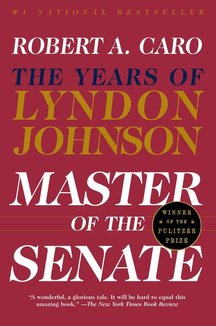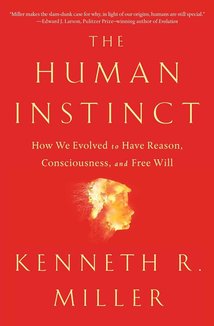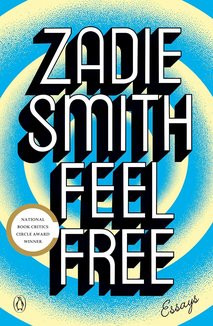Recommended Books

Master Of The Senate: The Years of Lyndon Johnson
Author:
Robert A. Caro
ISBN 13:
978-0394720951
Master of the Senate, Book Three of The Years of Lyndon Johnson, carries Johnson’s story through one of its most remarkable periods: his twelve years, from 1949 to 1960, in the United States Senate. At the heart of the book is its unprecedented revelation of how legislative power works in America, how the Senate works, and how Johnson, in his ascent to the presidency, mastered the Senate as no political leader before him had ever done. It was during these years that all Johnson’s experience—from his Texas Hill Country boyhood to his passionate representation in Congress of his hardscrabble constituents to his tireless construction of a political machine—came to fruition. Caro introduces the story with a dramatic account of the Senate itself: how Daniel Webster, Henry Clay, and John C. Calhoun had made it the center of governmental energy, the forum in which the great issues of the country were thrashed out. And how, by the time Johnson arrived, it had dwindled into a body that merely responded to executive initiatives, all but impervious to the forces of change. Caro anatomizes the genius for political strategy and tactics by which, in an institution that had made the seniority system all-powerful for a century and more, Johnson became Majority Leader after only a single term-the youngest and greatest Senate Leader in our history; how he manipulated the Senate’s hallowed rules and customs and the weaknesses and strengths of his colleagues to change the “unchangeable” Senate from a loose confederation of sovereign senators to a whirring legislative machine under his own iron-fisted control. Caro demonstrates how Johnson’s political genius enabled him to reconcile the unreconcilable: to retain the support of the southerners who controlled the Senate while earning the trust—or at least the cooperation—of the liberals, led by Paul Douglas and Hubert Humphrey, without whom he could not achieve his goal of winning the presidency. He shows the dark side of Johnson’s ambition: how he proved his loyalty to the great oil barons who had financed his rise to power by ruthlessly destroying the career of the New Dealer who was in charge of regulating them, Federal Power Commission Chairman Leland Olds. And we watch him achieve the impossible: convincing southerners that although he was firmly in their camp as the anointed successor to their leader, Richard Russell, it was essential that they allow him to make some progress toward civil rights. In a breathtaking tour de force, Caro details Johnson’s amazing triumph in maneuvering to passage the first civil rights legislation since 1875. Master of the Senate, told with an abundance of rich detail that could only have come from Caro’s peerless research, is both a galvanizing portrait of the man himself—the titan of Capital Hill, volcanic, mesmerizing—and a definitive and revelatory study of the workings and personal and legislative power.

The Human Instinct: How We Evolved to Have Reason, Consciousness, and Free Will
Author:
Kenneth R. Miller
ISBN 13:
978-1476790275
From one of America’s best-known biologists, a revolutionary new way of thinking about evolution that shows “why, in light of our origins, humans are still special” (Edward J. Larson, Pulitzer Prize–winning author of Evolution ). Once we had a special place in the hierarchy of life on Earth—a place confirmed by the literature and traditions of every human tribe. But then the theory of evolution arrived to shake the tree of human understanding to its roots. To many of the most passionate advocates for Darwin’s theory, we are just one species among multitudes, no more significant than any other. Even our minds are not our own, they tell us, but living machines programmed for nothing but survival and reproduction. In The Human Instinct , Brown University biologist Kenneth R. Miller “confronts both lay and professional misconceptions about evolution” ( Publishers Weekly , starred review), showing that while evolution explains how our bodies and brains were shaped, that heritage does not limit or predetermine human behavior. In fact, Miller argues in this “highly recommended” ( Forbes ) work that it is only thanks to evolution that we have the power to shape our destiny. Equal parts natural science and philosophy, The Human Instinct makes an “absorbing, lucid, and engaging…case that it was evolution that gave us our humanity” (Ursula Goodenough, professor of biology at Washington University in St. Louis).

Feel Free: Essays
Author:
Zadie Smith
ISBN 13:
978-0143110255
Winner of the 2018 National Book Critics Circle Award for Criticism A New York Times Notable Book From Zadie Smith, one of the most beloved authors of her generation, a new collection of essays Since she burst spectacularly into view with her debut novel almost two decades ago, Zadie Smith has established herself not just as one of the world's preeminent fiction writers, but also a brilliant and singular essayist. She contributes regularly to The New Yorker and the New York Review of Books on a range of subjects, and each piece of hers is a literary event in its own right. Arranged into five sections--In the World, In the Audience, In the Gallery, On the Bookshelf, and Feel Free--this new collection poses questions we immediately recognize. What is The Social Network--and Facebook itself--really about? "It's a cruel portrait of us: 500 million sentient people entrapped in the recent careless thoughts of a Harvard sophomore." Why do we love libraries? "Well-run libraries are filled with people because what a good library offers cannot be easily found elsewhere: an indoor public space in which you do not have to buy anything in order to stay." What will we tell our granddaughters about our collective failure to address global warming? "So I might say to her, look: the thing you have to appreciate is that we'd just been through a century of relativism and deconstruction, in which we were informed that most of our fondest-held principles were either uncertain or simple wishful thinking, and in many areas of our lives we had already been asked to accept that nothing is essential and everything changes--and this had taken the fight out of us somewhat." Gathering in one place for the first time previously unpublished work, as well as already classic essays, such as, "Joy," and, "Find Your Beach," Feel Free offers a survey of important recent events in culture and politics, as well as Smith's own life. Equally at home in the world of good books and bad politics, Brooklyn-born rappers and the work of Swiss novelists, she is by turns wry, heartfelt, indignant, and incisive--and never any less than perfect company. This is literary journalism at its zenith. Zadie Smith's new book, Grand Union , is on sale 10/8/2019.